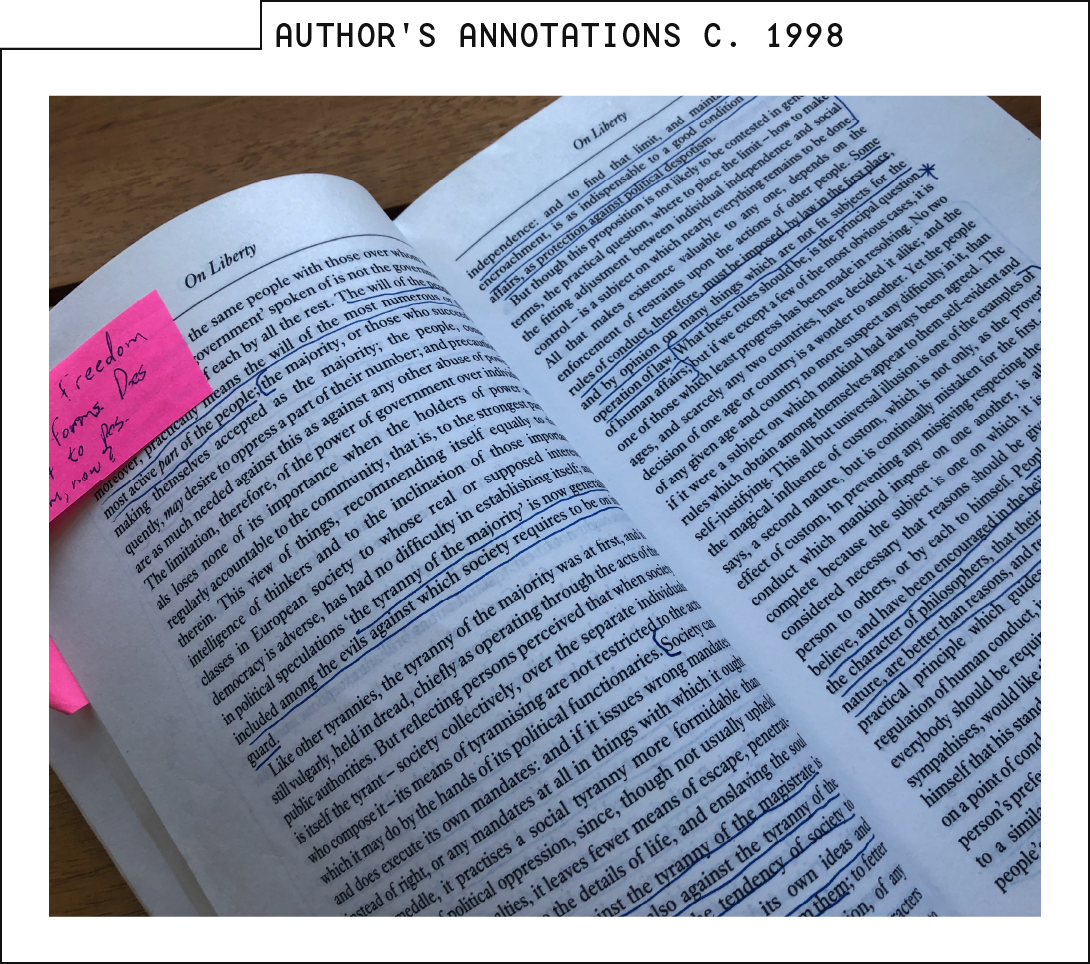Screens, Research and Hypertext
Powered by 🌱Roam GardenAnnotating Research Online
Marginalia is the unsung hero of research.
I spend most of my time reading things online. It’s kind of my entire job. But when I really want to learn something, I don’t read it on a screen. I buy it on paper.
I like to write in books. It’s how I engage with them. It’s a conversation with the author. You can tell how much I’ve liked a book by the number of passages that are underlined. And you can tell how much I’ve disagreed with a book by the number of comments in the margins.

Often my marginalia serve as a sort of time capsule, a reminder of the ideas that I obsessed over at a given period in my life.
There’s the copy of Mill's Utilitarianism from the period when I first realized that Rawls’ Aristotelian Principle might hold the key to making sense of Mill’s distinction between higher and lower pleasures.
A copy of FM 27-10, The Law of Land Warfare, riddled with references to the torture of prisoners and Abu Ghraib.
The Accidental Taxonomist—still bookmarked with a Christmas tag that marks it as a gift from my brother—filled with notes about the power of ontologies for research content.
Annotating on a screen is a kludge.
For starters, most serious nonfiction is still locked inside PDFs. Yes, you can add notes to a PDF. But it’s a clunky process that requires thought and some degree of coordination to get it positioned exactly where you want it. It’s enough to pull me out of the flow of whatever I’m reading.
Note-taking apps are easier than PDF annotations but bring on new challenges, as they require some way of referencing a note to a specific passage. That extra bit of cognitive load is again enough to disrupt concentration. And virtual notes often fail at their basic task of recovering half-remembered insights. Yes, you can search them—provided, of course that you remember enough to locate the correct search terms. (OneNote is great, right up until you have to rely on Microsoft’s search algorithms to find anything.)
Once you’ve found the notes, you still have to go find the original source. At least once a quarter, I see someone from the research sector putting out a request for some sort of system for tagging and retrieving all the PDFs they’ve downloaded.
To paraphrase an old quip: PDFs are the worst way to read an article—except for all the other ways.
For more context
Different kinds of reading call for different types of interfaces.
What to read next
Are there any tools for creating marginalia online?
Other items of interest
You can tell entire stories inside the marginalia of books.
What's wrong with PDFs online?
Yes, reports document research outputs. But they're also research inputs.
Referenced in
Annotating the Web that Could Be
Annotating online is largely a kludge. But there are a few places trying to do it better. Medium’s inline comments are brilliant in this regard: Highlight a passage and add some marginalia. The comment sticks directly to the highlighted passage and automatically generates a running list of all those comments in your own account. It’s marginalia and a note taking app all in one.